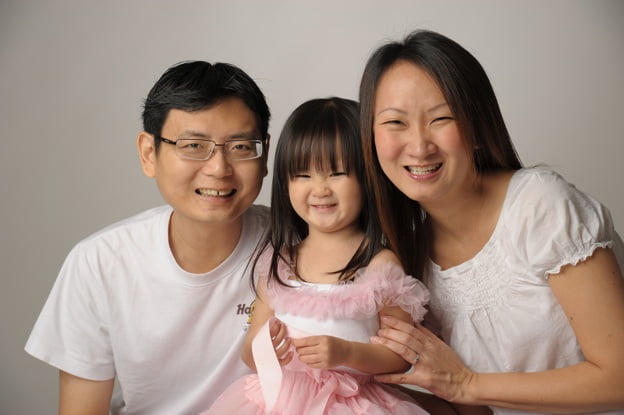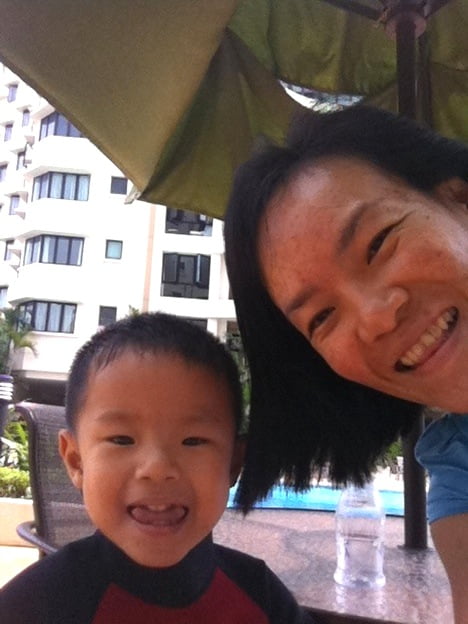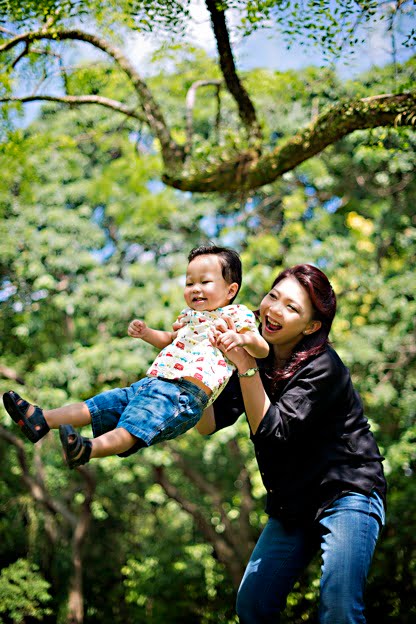SingaporeMotherhood | Parenting
November 2012
Stopping at One in Singapore

“It’s hard to juggle the upkeep of our household as well as the high costs of bringing up a child in Singapore versus spending sufficient quality time with our children – aren’t they the very reason why we work so hard? Because of that, both my husband and I are fully agreeable on this – one child is definitely enough for us,” says Michelle Tan, 38, whose son, Ethan, is four.
The company director and her husband devoted their time to their careers in the early years of marriage. By the time they thought about having a baby, it was almost to late. “Trying for a baby was not easy, and now that we have him, we just want to provide him with all our time and love. We do fear that we would have to divide our time outside of work between more kids if we had any,” she adds.
[banner][/banner]
Having a baby is a personal choice. Despite multiple carrots dangled by the government to encourage married couples to have children, Singapore’s birth rate remains low. These couples, who decided to stop at one, tell us why they are not biting.
One Child, One Rat Race
Linda Koh, 38, Trade Marketing & Sales Operation Manager

Having a child in Singapore means that one inevitably signs up for its tough educational system, says Linda, whose daughter, Alexandra, is six. “We want our child to enjoy the journey of learning. We do not want to force her to learn things at a ridiculous pace. For example, learning fractions in K2? My goodness, I only learnt that in Primary 3!”
Linda and her husband feel that in order to live a comfortable life in Singapore, you would need not just a job, but one that pays well. That would mean more work and longer hours in the office, and less time with their child. “Initially we didn’t think that we would stop at one child. But now we often feel that we do not have time for ourselves and for our family, thus, having just one is enough for us. More ‘me’ time = a happy mum = a happy husband = a happy family = a happy child!” Linda quips.
Not Worth Family Disputes
Yvonne Choo, 36, Senior Marcom Manager

Yvonne initially wanted to have two children. When she had her daughter Chloe in 2008, her mother and her mother-in-law helped to care for the baby as Yvonne and her husband worked full-time. They lived with their in-laws, and her mum would stay over on weekdays. This arrangement generated conflict as there were too many people under the same roof, each with their own lifestyle and set of values.
“It took us a long time to resolve the family disputes, so to avoid a repeat of all this, my husband and I decided not to have another child. It wasn’t an easy decision as my hubby wanted a second child very badly. I felt more strongly about this due to the stress that I had to go through during the first few months of Chloe’s birth, but my husband was supportive. He understood the pain that we went through so he agreed to stop at one.”
Yvonne, who is currently on no pay leave, made the decision to put her career on hold to spend more time with her daughter and not to miss out on her milestones. One concern that the parents have about only having one child is her ability to tend to them when they age. “It may be quite stressful for Chloe when we grow old as she has to shoulder the full responsibility of caring for us. This is why we are planning to be self-sufficient so that we don’t burden her,” Yvonne adds.
Post Natal Blues Gone Wrong
Lee Sok Kian, 40, Stock Trader

During her maternity leave, Sok Kian realised that she did not find joy in having a child. Apart from the fact that her baby was a difficult sleeper and a slow drinker, Sok Kian also suffered fom cabin fever: “I was very lonely at home, facing four walls, with a baby that could not ‘talk’ to me. I felt like I was going mad!”
Sok Kian’s mother helped to look after her son, Andrew Jonathan, but she passed away when the boy was four months old. Sok Kian believed that the fatigue from looking after her baby was a contributing factor to her mother’s demise. Because of this, she became depressed. She only fully recovered from the depression when her son was a year old, and now has a phobia about having another child.
Though she fears that AJ may grow up to be self-centered or selfish if he is not brought up properly, Sok Kian is confident that she will not change her mind about expanding the family and her husband respects her decision. AJ is now six years old.
Age is the Primary Factor
Regina Soejanto, 38, Marketing Manager

Regina’s son Caden, aged 22 months, came as a surprise as she and her husband were not trying to have a child. Both parents work full-time and Caden is cared for by Regina’s in-laws in the day. The couple do not want to place the burden of caring for another child on the older folk. “External childcare is expensive and we doubt that we will be able to place more than one child in full-time childcare,” Regina says.
Regina and her husband believe that it is ideal for children to grow up with siblings so that they will always have someone to rely on for support. “Sometimes we feel like we are depriving Caden of a sibling’s love. If I were younger, if we were more financially stable, or if the government makes the financial aspect of parenthood less daunting, we might.”
Regina feels that an increase in support and subsidies from the government — such as an increase in childcare subsidies and lowered levies for domestic help (so that mums can focus on caregiving rather than household chores) — might entice women to have more children. “Baby bonuses and an extension of maternity leave are not long-term solutions. Regardless of the length of leave or the amount of paid bonuses, once the leave ends and the bonus is exhausted, the child still needs to be cared for daily,” she explains.
Not About Government Benefits
Wendy Kwek, 27, Stay-at-home-mother

Wendy and her husband are determined to only have one child regardless of government incentives. The couple loves to travel, and finds it convenient to bring three-year-old Benson with them. Asked if her son may feel lonely as an only child, the ex-manicurist says: “There are many ways to fight loneliness. We have been sending Benson to a daily playgroup and he also meets his cousins every weekend”.
Wendy and her husband like having only one child because this allows them to focus fully on his well-being and spend all their time with him. It also allows Wendy to give him her full attention at home on a daily basis.
“A lot of friends ask me why I only want one child. Some may feel that I’m selfish. But I honestly think it will be hard for me to balance my love between two children. I cannot imagine having a second baby and neglecting Benson, who needs a lot of my attention. We are all human, and chances are, we will compare between the kids, and favour one over another, and I don’t want to do that. Having a child is a planned responsibility; it’s not about governmental benefits,” she adds.
All family photos courtesy of the mums interviewed
All content from this article, including images, cannot be reproduced without credits or written permission from SingaporeMotherhood.
Follow us on Facebook, Instagram, and Telegram for the latest article and promotion updates.





